Sign up to get the Sloww Sunday newsletter via email for free:👇
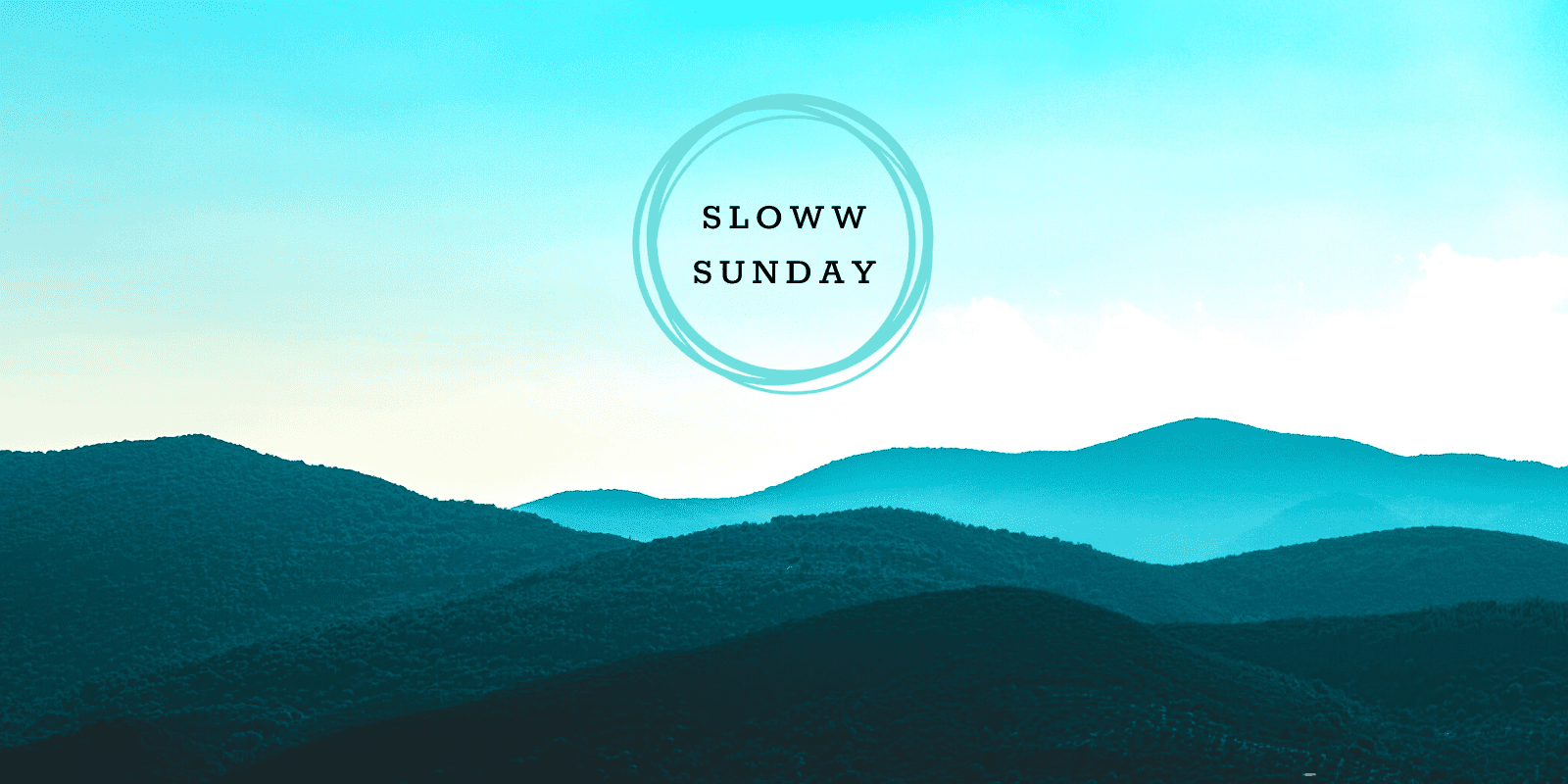
Sloww Sunday Newsletter 203 (Dec 1, 2024) — Slow vs Speed Reading, Horizontal vs Vertical Development, Distal vs Proximate Self, & More
The Sloww Sunday newsletter sends to 10,000+ readers downshifting into deeper living. If you enjoy this issue, please help grow Sloww by forwarding this newsletter to others!
New to Sloww? Here’s what it’s about in a nutshell (which mirrors the newsletter sections below):
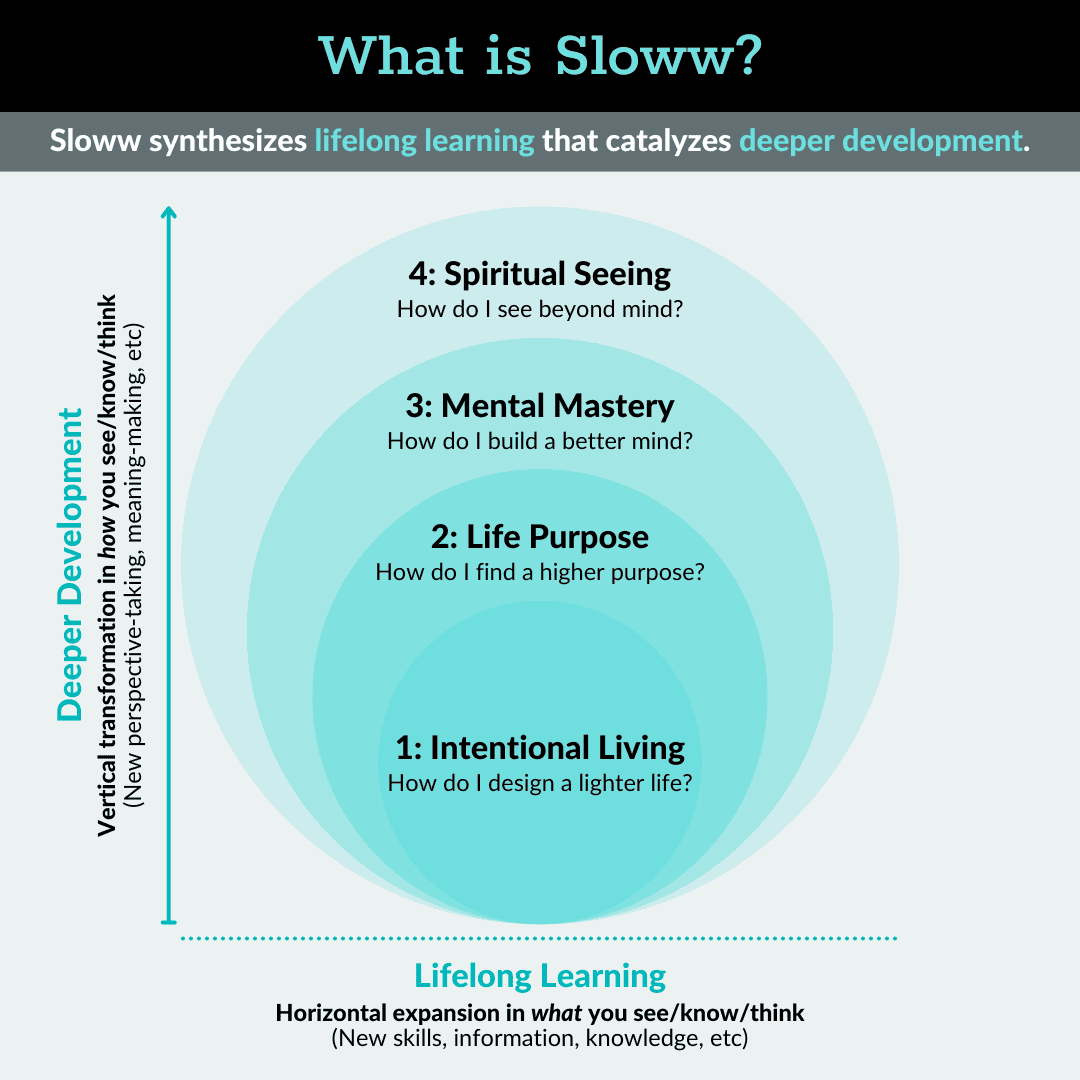
📘🌀 Lifelong Learning & Deeper Development

What’s the difference between horizontal and vertical development?
Let’s clear up the confusion with a little human development 101:
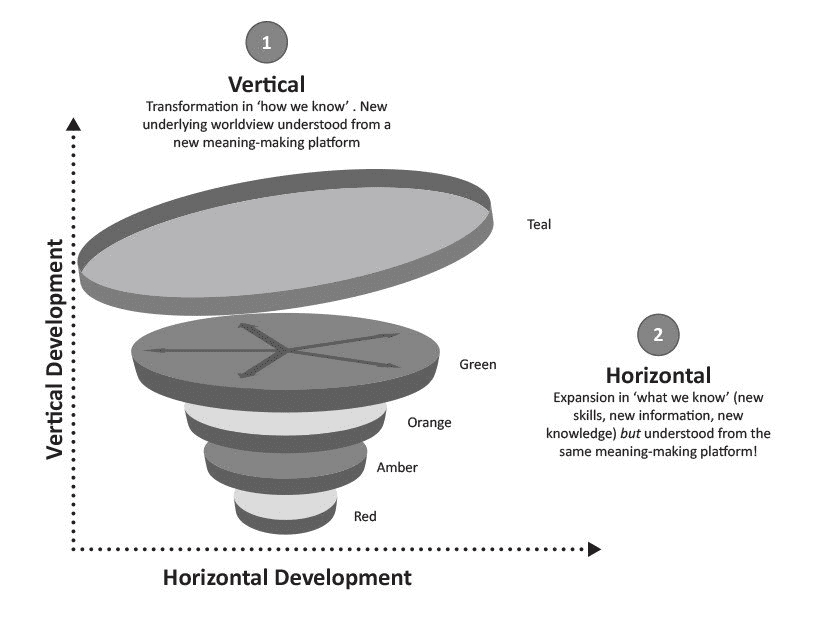
- Horizontal Development: expansion in what you know/think (developing new skills, adding new information, transferring knowledge from one area to another, etc); expands a current way of meaning-making without a fundamental shift in worldview, sensemaking, etc (new skills/info/knowledge are assimilated to the current perspective but do not necessarily challenge fundamental assumptions we might be holding about ourselves, others, and the world); more common (than vertical development).
- Vertical Development: transformation in how you know/think (transforms our view of reality through a new psychological stage with new meaning-making and perspective-taking that’s more holistic); increases what we are aware of and therefore what we can influence and integrate (learning to see the world through new eyes, interpreting our experiences in new ways); rarer and more powerful (than any amount of horizontal development).
🔒 Sloww Premium members can learn more in Integral Psychology & Spirituality Synthesis: How to Develop Holistically with Ken Wilber (10+ Visuals)
🧠 Synthesizer course students can learn more in lesson 6.6 Core Concept: Horizontal & Vertical Development
0️⃣ Sloww Stage Support Explore More: 50+ posts on Lifelong Learning & Deeper Development
🧠 Sloww Stage Support Featured Product: Synthesizer Course: The Flagship Course for Synthesizing Minds (the most important mind of the future)
🌎 Intentional Living
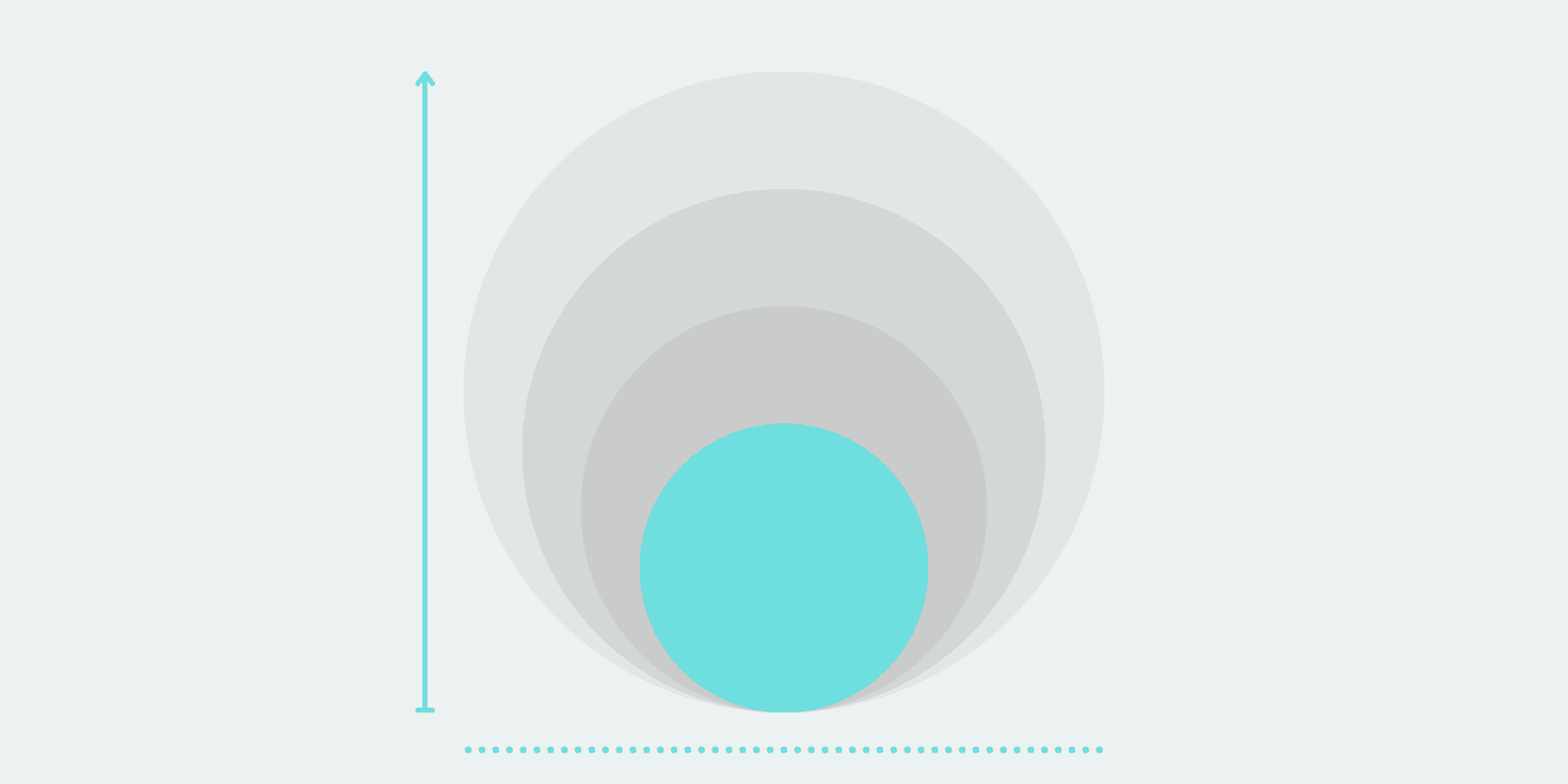
Should we be speed reading, slow reading, or somewhere-in-between reading?
Which is it? I’ve always been a naturally slow reader my entire life. This has had it’s pros and cons: the upside is that I’m thorough and methodical, but the downside is that I spend way too much time and energy slowly reading stuff that should be read quickly (or not at all).
Mortimer Adler, co-author of the classic How to Read a Book (Amazon | Summary | 🔒Premium), outlines the dilemma:
- “Too often, there are things we have to read that are not really worth spending a lot of time reading; if we cannot read them quickly, it will be a terrible waste of time. It is true enough that many people read some things too slowly, and that they ought to read them faster. But many people also read some things too fast, and they ought to read those things more slowly.” — Mortimer Adler
So, the debate between only fast reading vs only slow reading is misguided. Instead, Adler says the secret is variable speed reading:
- “As Pascal observed three hundred years ago, ‘When we read too fast or too slowly, we understand nothing.’ Since speed-reading has become a national fad, this new edition of How to Read a Book deals with the problem and proposes variable-speed-reading as the solution, the aim being to read better, always better, but sometimes slower, sometimes faster … It should enable you to vary your rate of reading in accordance with the nature and complexity of the material.” — Mortimer Adler
The ideal:
- “One constant is that, to achieve all the purposes of reading, the desideratum must be the ability to read different things at different—appropriate—speeds, not everything at the greatest possible speed … There is no single right speed at which you should read; the ability to read at various speeds and to know when each speed is appropriate is the ideal … With regard to rates of reading, the ideal is not merely to be able to read faster, but to be able to read at different speeds—and to know when the different speeds are appropriate.” — Mortimer Adler
When it comes to book reading:
- “Our point is really very simple. Many books are hardly worth even skimming; some should be read quickly; and a few should be read at a rate, usually quite slow, that allows for complete comprehension … Great speed in reading is a dubious achievement; it is of value only if what you have to read is not really worth reading. A better formula is this: Every book should be read no more slowly than it deserves, and no more quickly than you can read it with satisfaction and comprehension.” — Mortimer Adler
For me personally (someone who reads slowly and needs to embrace more speed reading), I always need to remember:
- “It is wasteful to read a book slowly that deserves only a fast reading.” — Mortimer Adler
🔒 Sloww Premium members have access to the Premium Summary & Infographics of the four different levels of reading
🧠 Synthesizer course students can learn more in lesson 3.3 Core Concepts: Reading Levels & Speeds
1️⃣ Sloww Stage 1 Explore More: 100+ posts on Intentional Living
😃 Sloww Stage 1 Featured Product: The Hierarchy of Happiness: 100+ Powerful Perspectives on How to be Happy (Free eBook)
🧭 Life Purpose
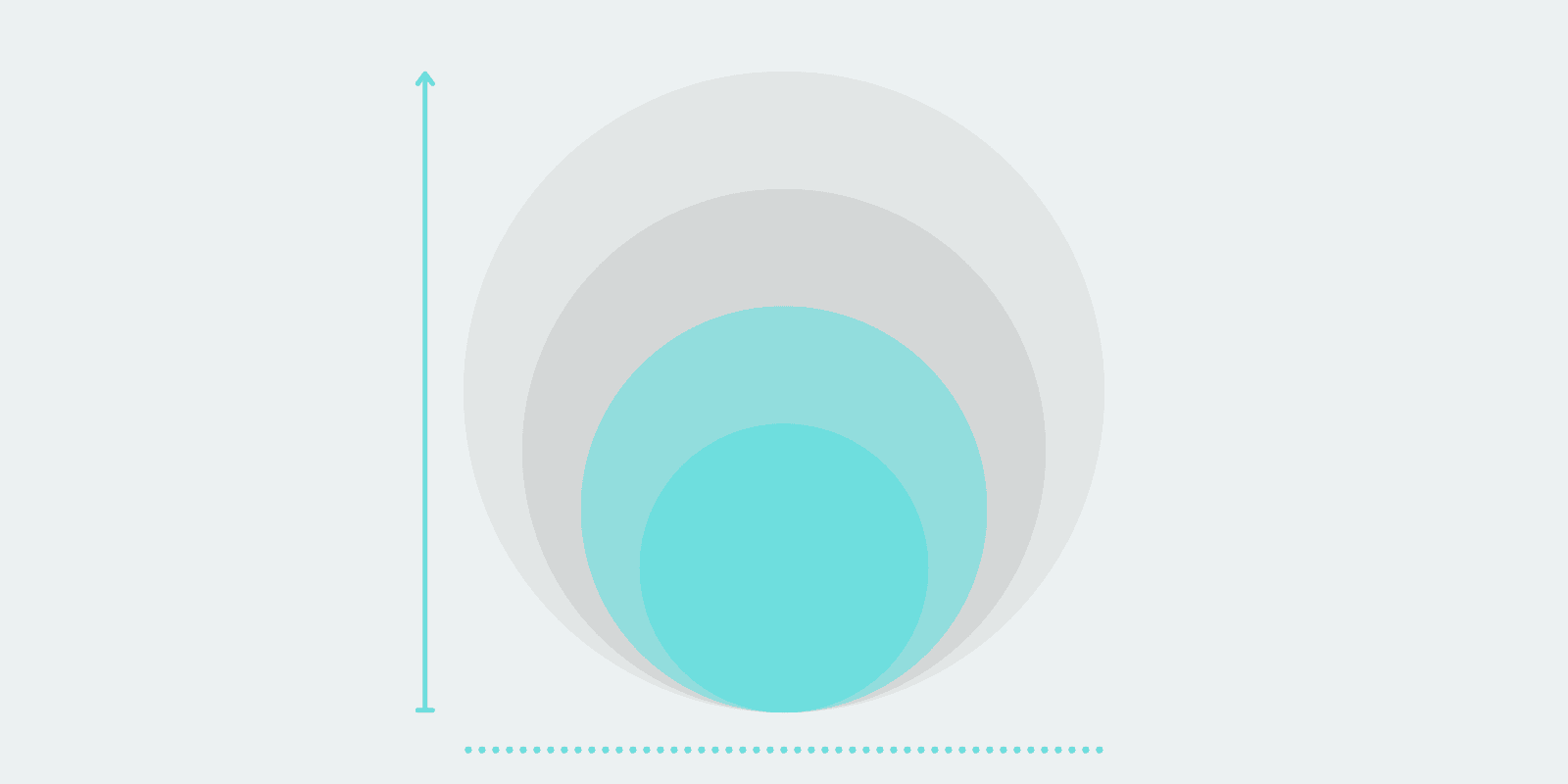
New Life Decade, New Lifestyle Design
Several years ago in my mid-30s, I published this post with 35+ lifestyle design questions to ask yourself along with this Premium post about my own personal lifestyle design (🔒).
Soon, I’m turning 40. So, I revisited the posts to see what’s the same and what’s totally different. The biggest change of all is we now have a baby! We also added a second dog last year. One big thing I need to turn around is getting back in shape (aiming to be in better shape in my 40s than my 30s).
Are you living a life you love? Instead of doing things you dislike for decades and deferring living to the future, lifestyle design is figuring out the life you love and living it in the present.
- “A master in the art of living draws no sharp distinction between his work and his play, his labour and his leisure, his mind and his body, his education and his recreation.” — L. P. Jacks
- “To affect the quality of the day, that is the highest of arts.” — Henry David Thoreau
- “How we spend our days is, of course, how we spend our lives.” — Annie Dillard
🔒 Sloww Premium Deep Dive: Behind the Scenes: A Look at My Personal Lifestyle Design
2️⃣ Sloww Stage 2 Explore More: 50+ posts on Life Purpose
🧭 Sloww Stage 2 Featured Product: Ikigai 2.0: A Step-by-Step Guidebook to Finding Life Purpose & Making Money Meaningfully (+ Bonus Workbook)
🧠 Mental Mastery
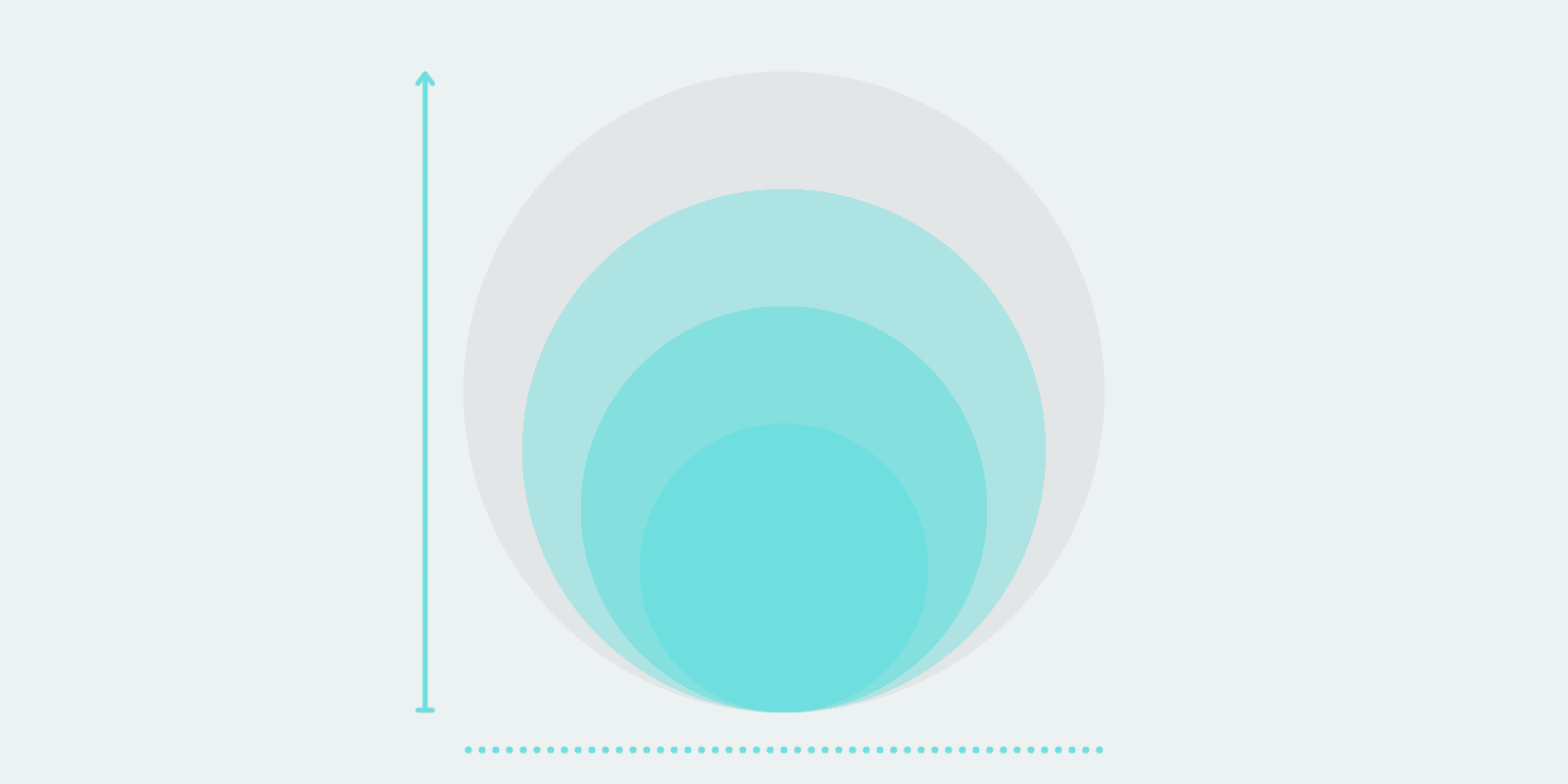
3 Selves that make up Your Self
Susanne Cook-Greuter’s paper The Self-System in Integral Counseling (ResearchGate) has a nice overview of three types of selves. You can also learn more in Ken Wilber’s book Integral Psychology (Amazon | Summary | 🔒Premium). Here’s an overview:
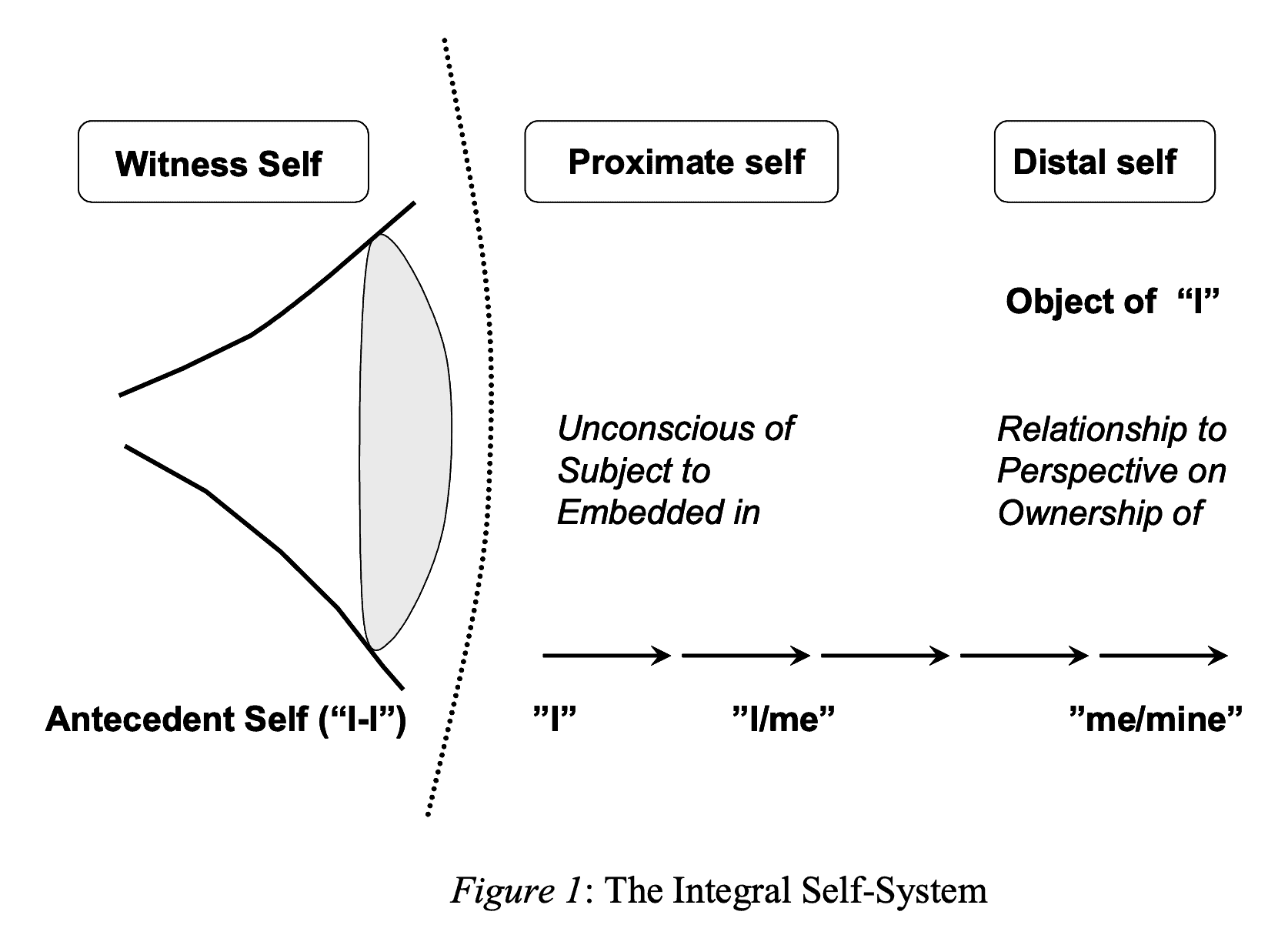
- Distal self (‘farther away’, experienced as a ‘me’/’mine’, observed self): Aspects of self from which one has gained some distance (accepts them as parts but no longer wholly identified or embedded in them); objects of awareness (objective things that you can see or know about yourself).
- Proximate self (closer to ‘you’, experienced as an ‘I’, observing self): Reflected in the language of ‘I’ and ‘I/me’ (whatever is considered ‘I’ is mostly subject and not yet an object of awareness); the lens through which an individual experiences life (much is unconscious because the person is embedded in it); what a person is most intimately identified with (the central source of identity that expands/deepens through stage-like development).
- Witness Self (antecedent Self, transcendent Self, ‘I-I’): At the ‘very back’ of your awareness; the witness of the ego; at (and beyond) certain levels of development, one may be able to reflect on their ego as an object of awareness (what Ego Development Theory calls ‘Construct-Aware’ or ‘Ego-Aware’).
🔒 Sloww Premium Deep Dive:
- Integral Psychology & Spirituality Synthesis: How to Develop Holistically (10+ Visuals)
- Ken Wilber Synthesis: Everything about Integral Theory (10+ Visuals)
3️⃣ Sloww Stage 3 Explore More: 100+ posts on Mental Mastery
🧠 Sloww Stage 3 Featured Product: Mini Mind: 365 Days of Bite-Size Brain Food
☯️ Spiritual Seeing
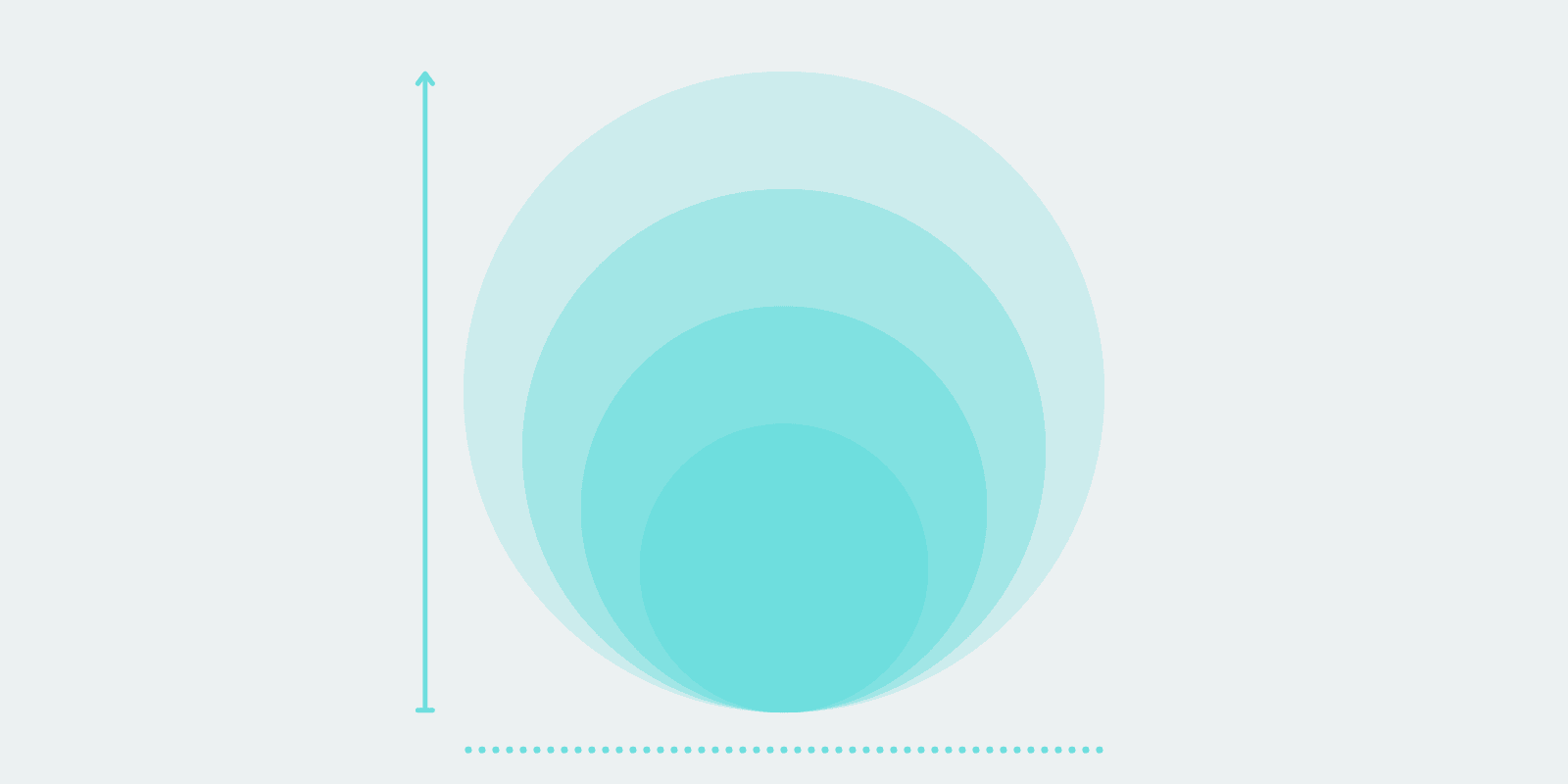
The Headless Way ‘Blind’ Experiment
I’m a big fan of Douglas Harding’s “headless way.” I eventually plan to read virtually all of Harding’s books (see my reading list), but so far you can check his books On Having No Head (Amazon | Summary) and The Science of the 1st Person (Amazon | Summary)—along with some of my favorite Douglas Harding quotes.
This week I also published a new Premium post: 🔒How to do the Headless Way Blind Experiment (Video & Notes)
Last but not least, I recently discovered the headless way now has a mobile app (iOS, and I believe also on Android):
🔒 Sloww Premium Deep Dive:
- How to See Clearly with the Headless Way Experiments (Visuals & Videos)
- How to do the Headless Way Blind Experiment (Video & Notes)
4️⃣ Sloww Stage 4 Explore More: 100+ posts on Spiritual Seeing
👣 Sloww Stage 4 Featured Product: Wise Walk: 365 Days of Enlightening Exercise
💬 Final Thought
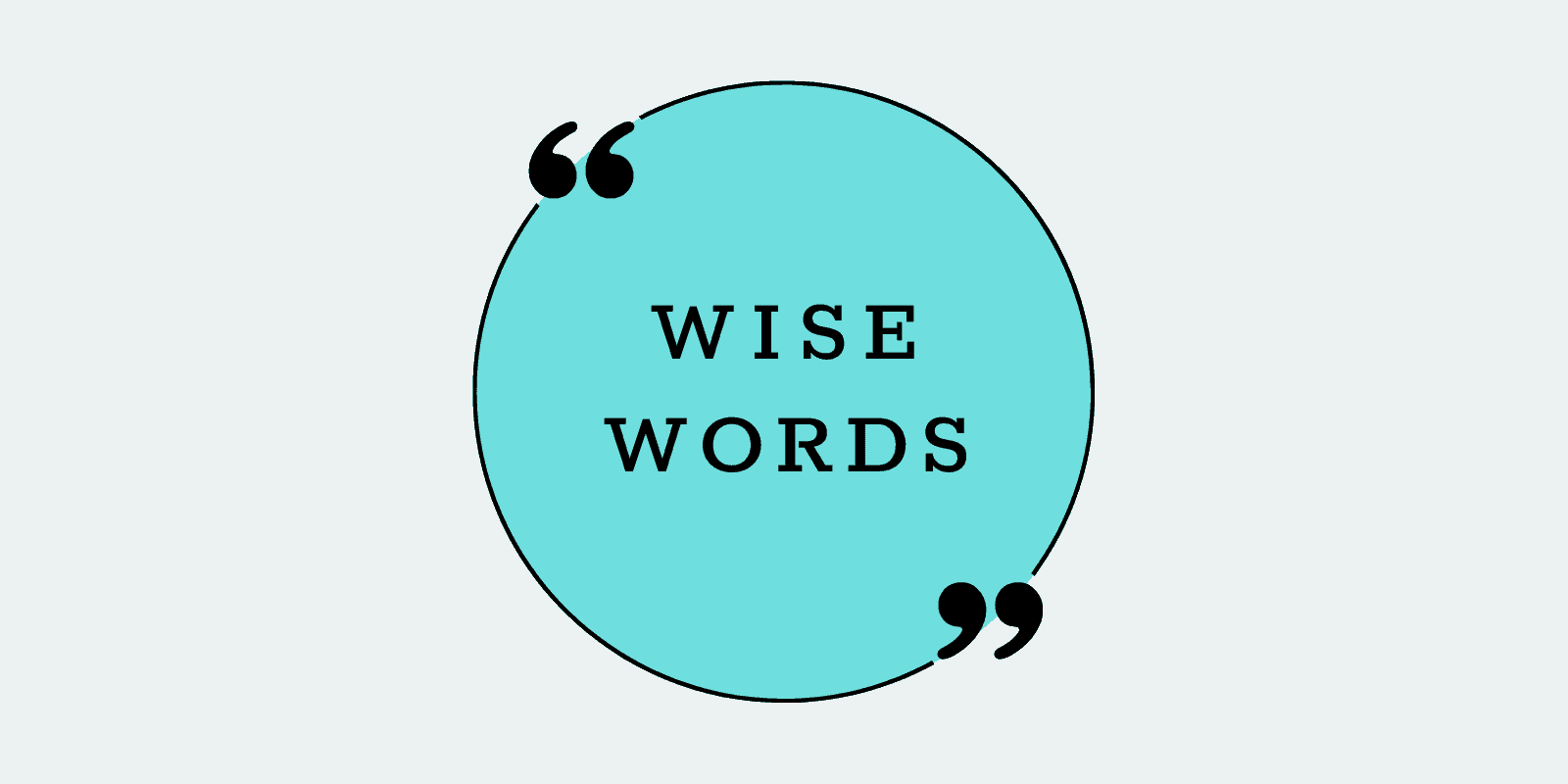
On humor in life:
- “The capacity for humor, like hope, is one of man’s most potent antidotes for the woes of Pandora’s box.” — George Vaillant
- “The attempt to develop a sense of humor and to see things in a humorous light is some kind of a trick learned while mastering the art of living. Yet it is possible to practice the art of living even in a concentration camp, although suffering is omnipresent.” — Viktor Frankl
- “As you proceed through life, following your own path, birds will shit on you. Don’t bother to brush it off. Getting a comedic view of your situation gives you spiritual distance. Having a sense of humor saves you.” — Joseph Campbell
Pair with: 25+ Spiritual Awakening Memes to Wake Up with a Sense of Humor
Share: Sloww Sunday currently sends to 10,000+ students of life each week. If you enjoyed this issue, please help grow Sloww by forwarding this newsletter to some friends and family. It’s free for them to subscribe here.
Support: Sloww is a one-human labor of love (it’s just me over here 👋). Your support keeps the site ad-free and invests in me while you invest in yourself—a true win-win! There are free and financial ways to support.
Speak: Have something you want to say, or just want to say hi? It’s always greatly appreciated. Just leave a comment or reach out socially.
All the best,
Kyle Kowalski
Founder, Sloww




